1864
Nevada entered statehood with a constitution providing for a state university.
1873
Governor L.R. Bradley signed a legislative bill locating the University in Elko.
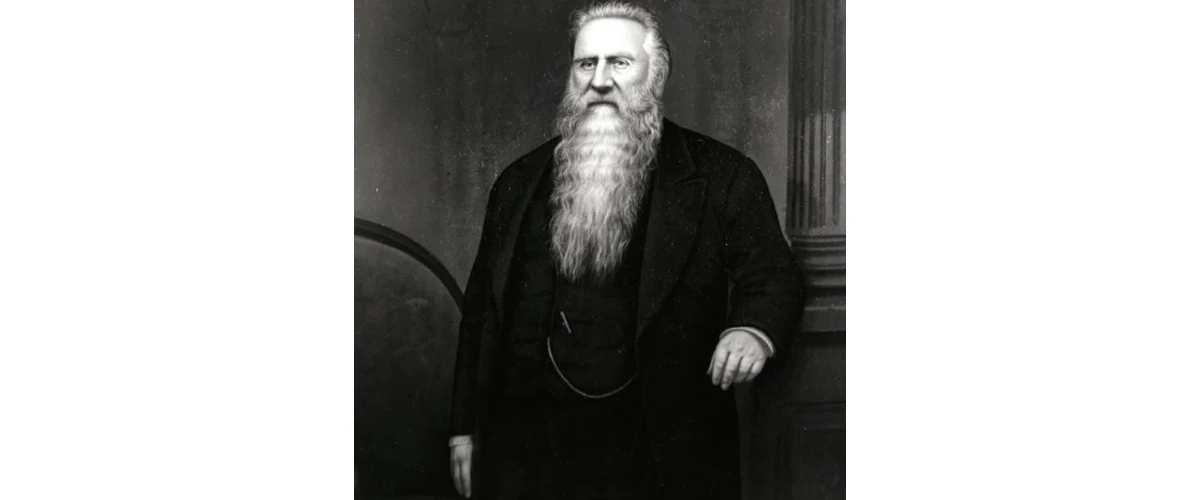
Photograph of print of L. R. Bradley, second Governor of Nevada. Special Collections and University Archives Photograph Collection, "Broadhorns" L. R. Bradley, 1879, UNRS-P1099
1874
University Preparatory School opened in Elko with seven students.
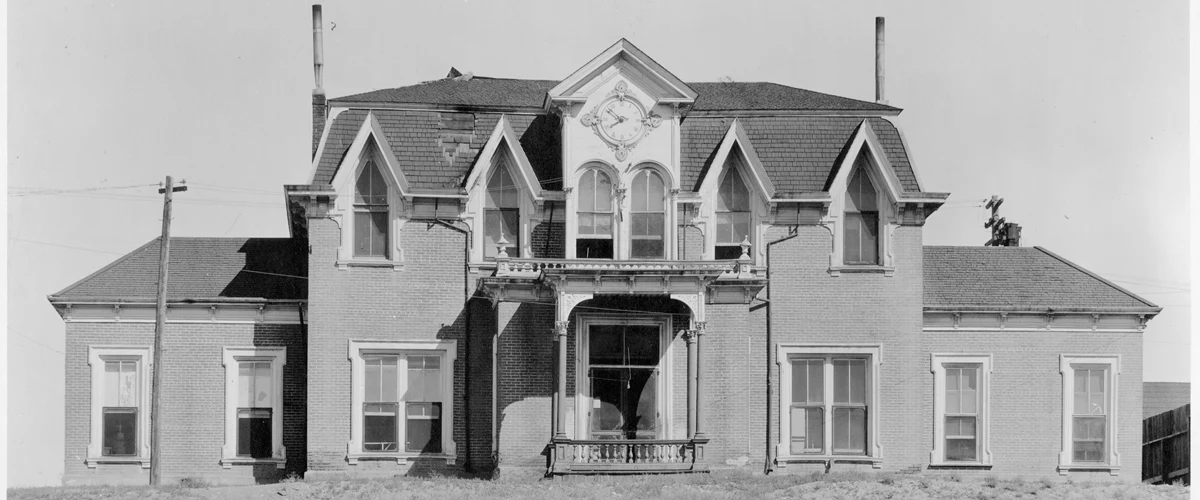
A black and white photo of the University Preparatory School in Elko, Nevada, a multi-story building with arches on the roof and steeples.
1885
Governor Jewett Adams signed a legislative bill moving the University to Reno. Morrill Hall opened.
1886
The University formally reopened as a preparatory school in the new Morrill Hall on the Reno campus. Classes began with 75 students enrolled.
1887
The administration of President LeRoy D. Brown, the University’s 1st president, began.
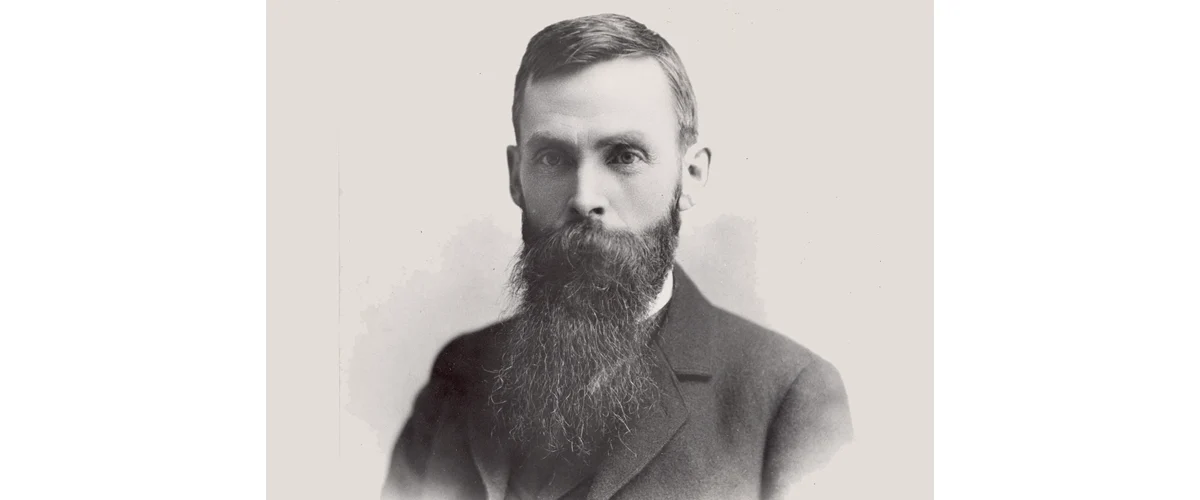
This portrait shows Dr. Leroy D. Brown who was the first president of the University of Nevada from 1887 to 1889 (photographic print, 7.75 x 10 inches). Special Collections and University Archives Photograph Collection, University President Leroy D. Brown, 1887, UNRA-P130-1
1887
Fifty students enrolled in the 1887-1888 academic year for the first year of college-level instruction.
1887
President Brown and Hannah K. Clapp began as faculty, hiring two additional faculty members within the first year.
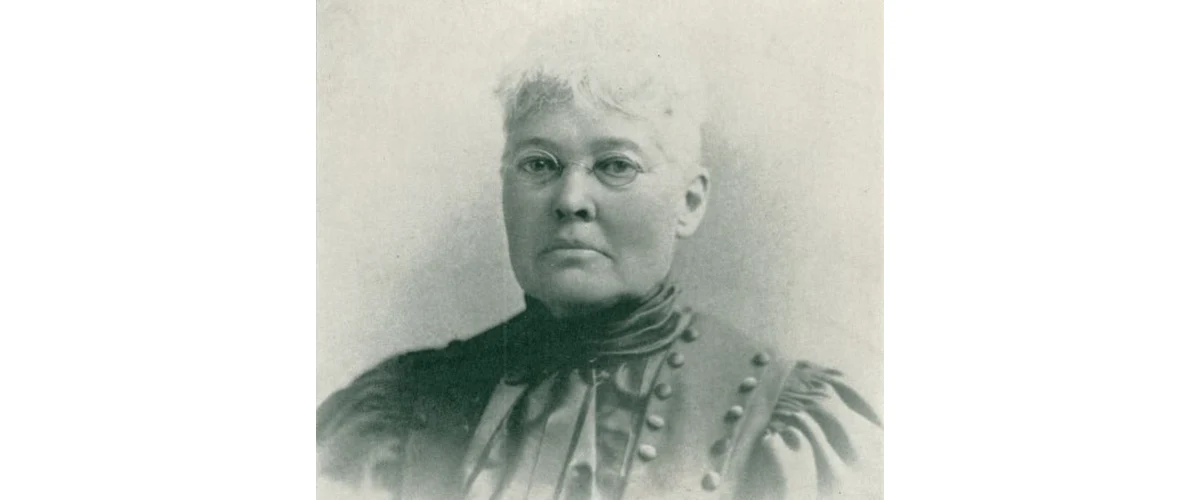
In 1887, at the age of 63, Hannah Clapp was hired as the first faculty member at the university to teach English and History. In that same year, University President Leroy Brown assigned her the additional duties of librarian. She became so involved with the library work that the instructional duties were assigned to someone else. She served as librarian for 14 years, from 1887 to 1901. Miss Clapp is probably best remembered for her successful bid to supply the Wrought Iron Railing for a fence around the capitol in Carson City. Her bid was signed H.K. Clapp, and the fence still stands today. Special Collections and University Archives Photograph Collection, Faculty, Head Librarian and English Professor Hannah Clapp, ca. 1900, UNRA-P174-01
1888
The School of Mines launched, with Robert D. Jackson, Ph.D., as director.
1888
Following the provisions of the Morrill Act, and with the support of Congress, the University established the Agricultural Experiment Station.
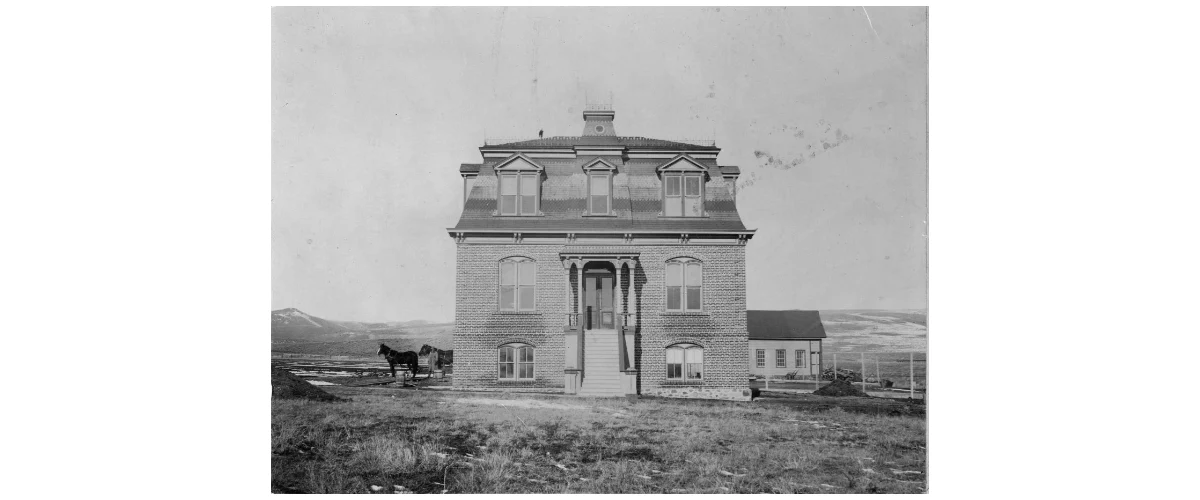
Two horses stand near the Nevada Agricultural Experiment Station building. The Nevada Agricultural Experiment Station, later known as the Physics Building, was the second building constructed on campus in 1889 to house the growing group of Agriculture students. The top part of the building was destroyed in a fire the following year. The building was reconstructed after the fire and housed the Mining School and then the Physics School, until in 1929 when it was demolished to make space for construction of the new Mackay Science Building. Special Collections and University Archives Photograph Collection, Nevada Agricultural Experiment Station, 1900, UNRA-P149-02
1890
Stephen A. Jones, the University’s 2nd president, began his term on January 6.
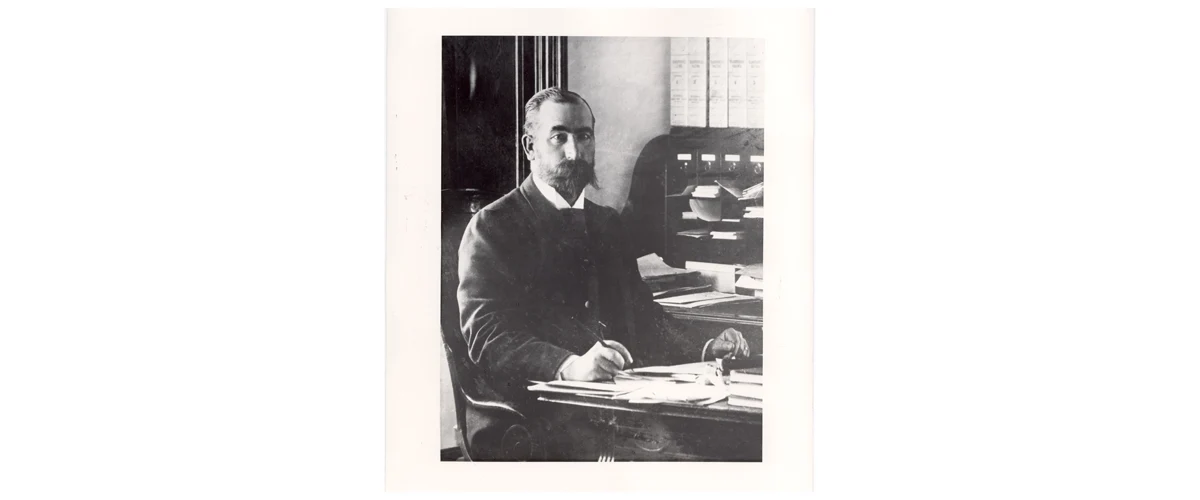
Stephen A. Jones was the second president of the University of Nevada between the years of 1890 and 1894 (photographic print, 8 x 10 inches). Special Collections and University Archives Photograph Collection, University President Stephen A. Jones, Morrill Hall, 1892, UNRA-P1427-1
1891
Frederick Bristol, Henry Colman Cutting, and Frank Norcross received the first three college degrees in the School of Liberal Arts.
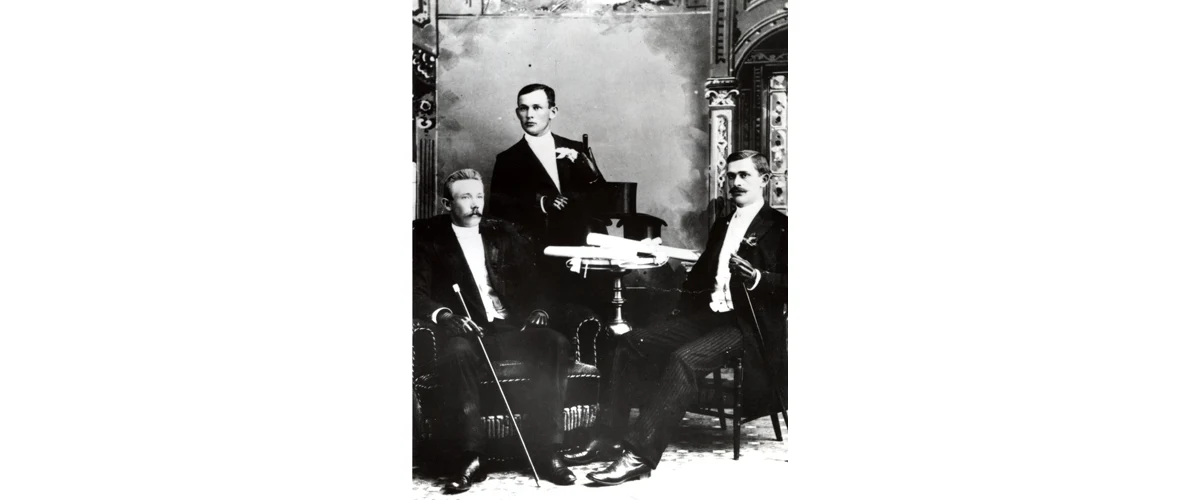
The first three students to graduate from the University of Nevada are photographed here from left to right: Frank H. Norcross, Fred C. Bristol, and Henry Cutting. Special Collections and University Archives Photograph Collection, Class of 1891 Commencement, (first U.N. graduating class), 1891, UNRA-P54-1
1891
McKissick Opera House in Reno hosted the first graduation exercises.
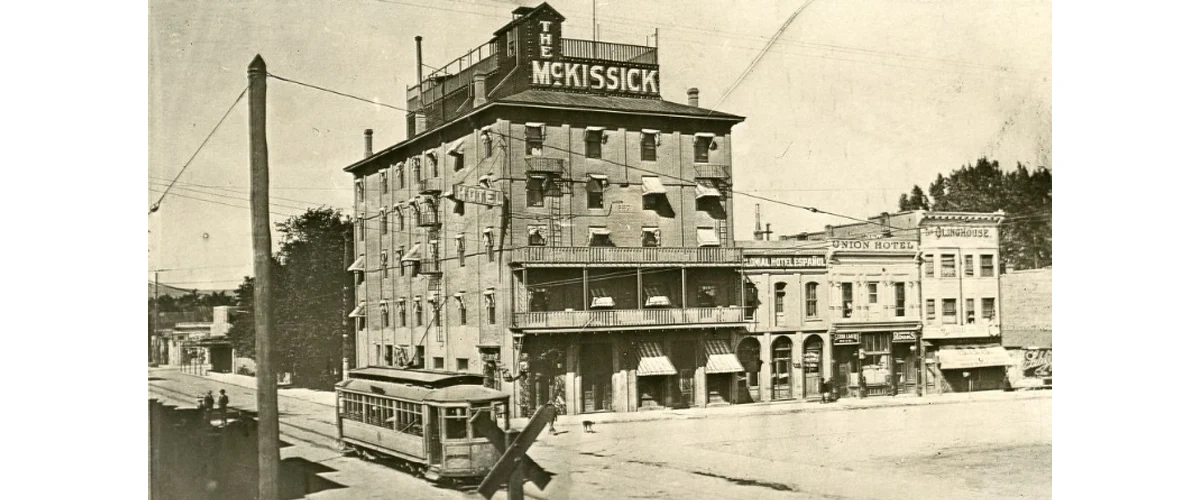
Photograph of the McKissick Hotel on the northeast corner of Sierra Street and Plaza Street in Reno, Nevada with a southbound streetcar in the foreground on Sierra Street; The McKissick Hotel was built in 1887 as the McKissick Opera House and was once the the cultural center of Reno, as well as its tallest building; after the death in 1900 of Jacob McKissick, the rancher and successful businessman from Suisun, California who built the opera house, the building was remodeled into a hotel with an elevator and a rooftop beer garden by his daughter-in-law, Mrs. Howard B. McKissick and opened as the Hotel Reno in 1908; postcard Special Collections and University Archives Photograph Collection, The McKissick Hotel, UNRS-P1992-03-0525
1892
Blanche Davis became the first woman to graduate from the University. Along with four other people, she received a Bachelor of Arts degree.
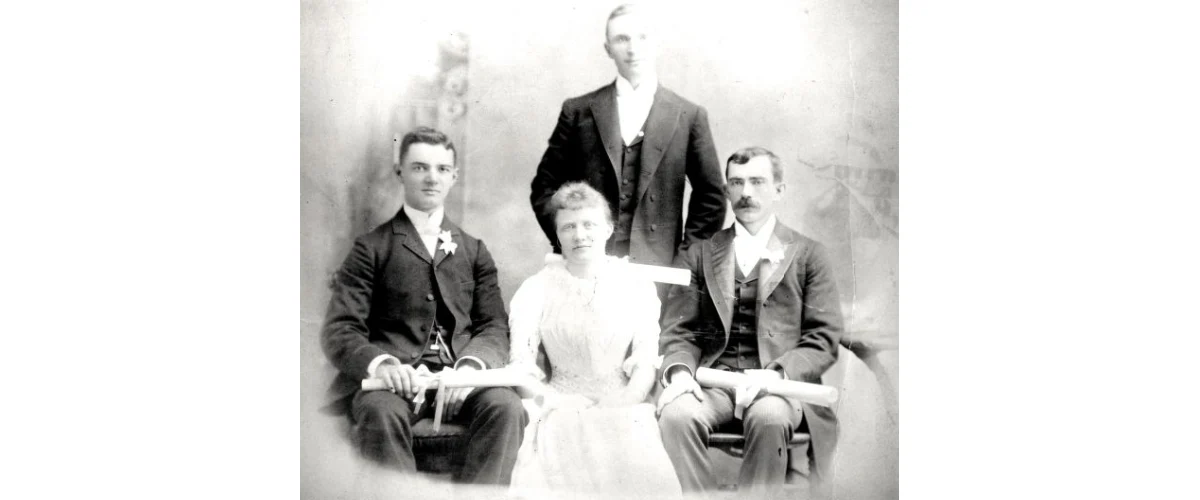
Graduating students from the second graduating class of the university include William Barney, Blanche Davis, Albert Lewers, and Frederick Stadtmuller, all posing for a commencement photograph. Blanche Davis was the first women graduate and the fifth student to receive a Bachelor's of Art from the University of Nevada. Special Collections and University Archives Photograph Collection, Class of 1892 Commencement, (second U.N. graduating class), 1892, UNRA-P416-1
1892
The Schools of Mines and Agriculture graduated their first classes.
1893
The first issue of the student newspaper, The Student Record, appeared on October 19.
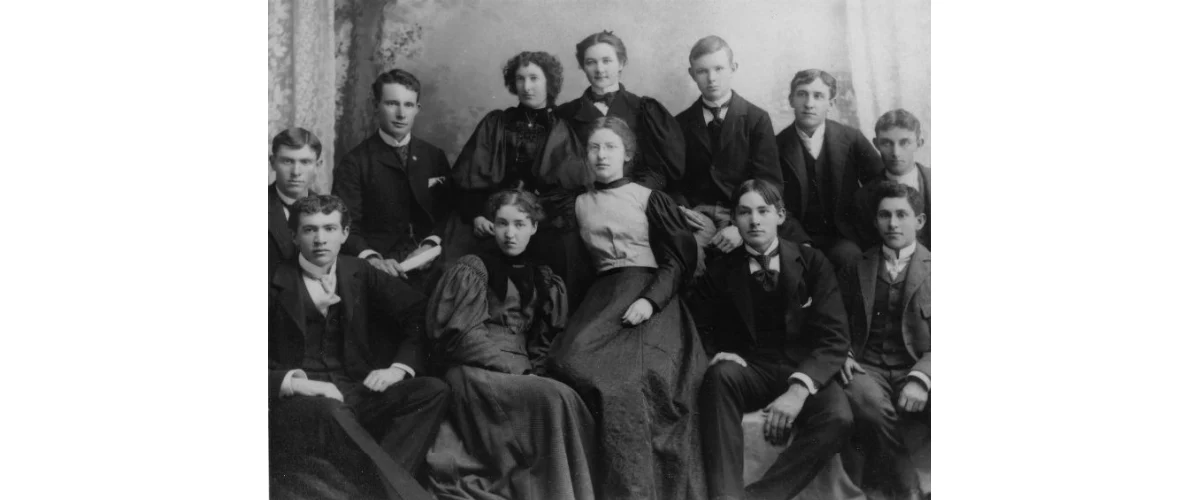
Student Record student staff photographed here include the following members: George Bliss, Robert Brambila, Thomas P. Brown, Samuel B. Doten, Dan Finleson, and John Sullivan. The Student Record was the first student-published newspaper on campus and came about in secret after the administration refused to help the students start a journal. Special Collections and University Archives Photograph Collection, Student Record (1886-1887) staff, 1896, UNRA-P369-1
1894
Joseph Edward Stubbs, the University’s 3rd president, began his tenure on July 1st.
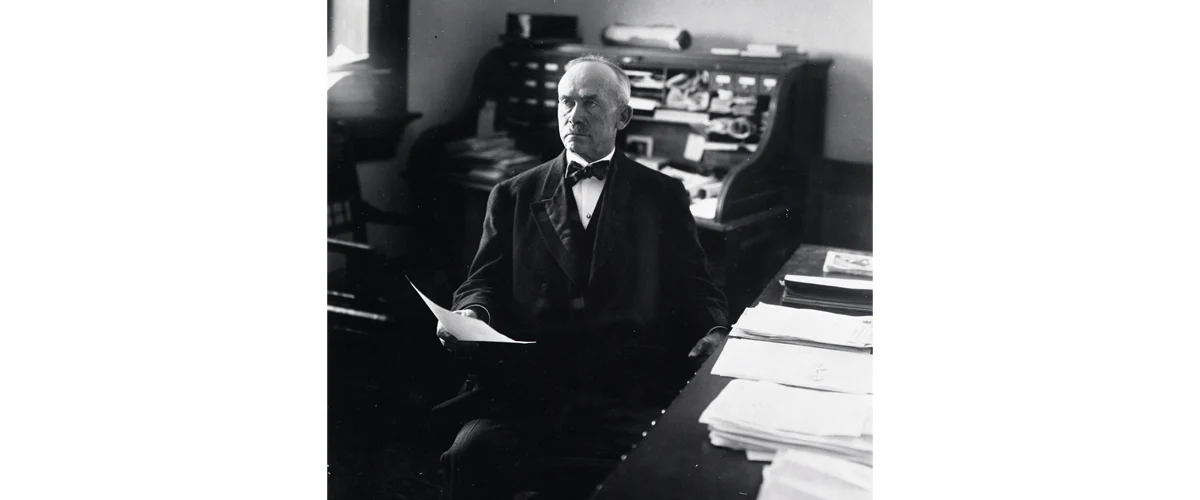
University President Joseph E. Stubbs (president from 1894-1914) is seated at his desk, holding a paper (photographic print, 6 x 8 inches). Special Collections and University Archives Photograph Collection, University President Joseph E. Stubbs, President's Office, 1910, UNRA-P337-1
1894
Students formed the Independent Association of the University of Nevada.
1894
University graduates organized the Alumni Association of the University of Nevada.
1895
The Mining Analytical Laboratory launched an assay service for citizens of the state.
1896
The first freestanding dormitory, Lincoln Hall, opened as a men’s dormitory.
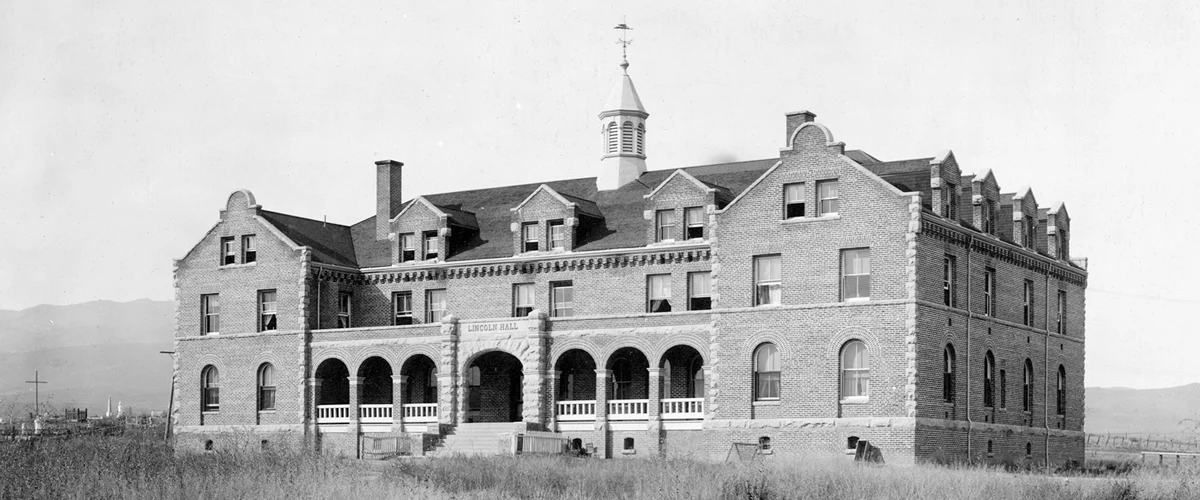
Lincoln Hall, the first men's dormitory built at the University in 1896, with a wooden boardwalk leading through grassy areas up to the entrance.
1896
Manzanita Hall opened as the first women’s dormitory.
1898
An intercollegiate men's football team began competing.
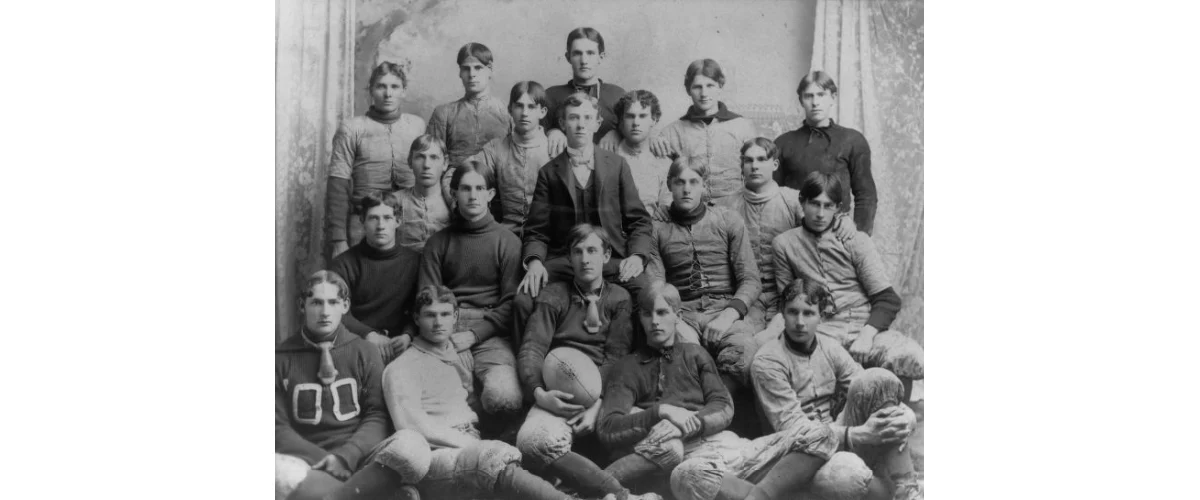
Photograph of the 1986 Nevada football team. Special Collections and University Archives Photograph Collection, Football team, University of Nevada, 1896, UNRA-P1541-1
1889
This year marked the first appearance of the University’s yearbook, The Artemisia.
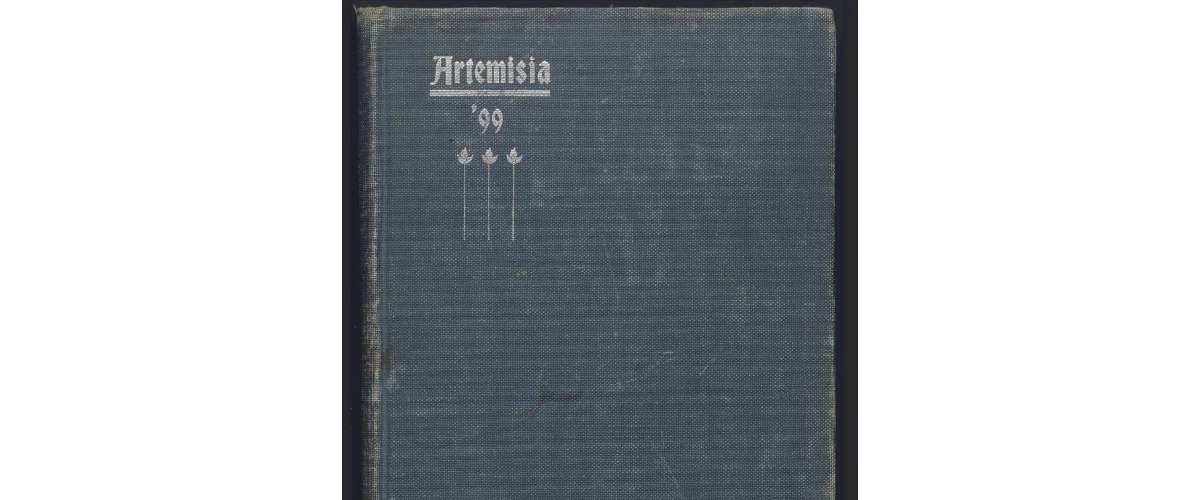
Blue cover of the original 1899 Artimisia Year book with the words "Artimisia '99" on the cover.
1899
The University adopted silver and blue as the school colors.
1899
Washoe County presented the University with a sixty-acre farm valued at $12,000 to be used in connection with the Agricultural Experiment Station.
1900
The University opened a school of commerce, making it the fourth university in the nation to offer a four-year business degree.
1900
With a final price tag of over $8,000, construction on the president's house was completed.
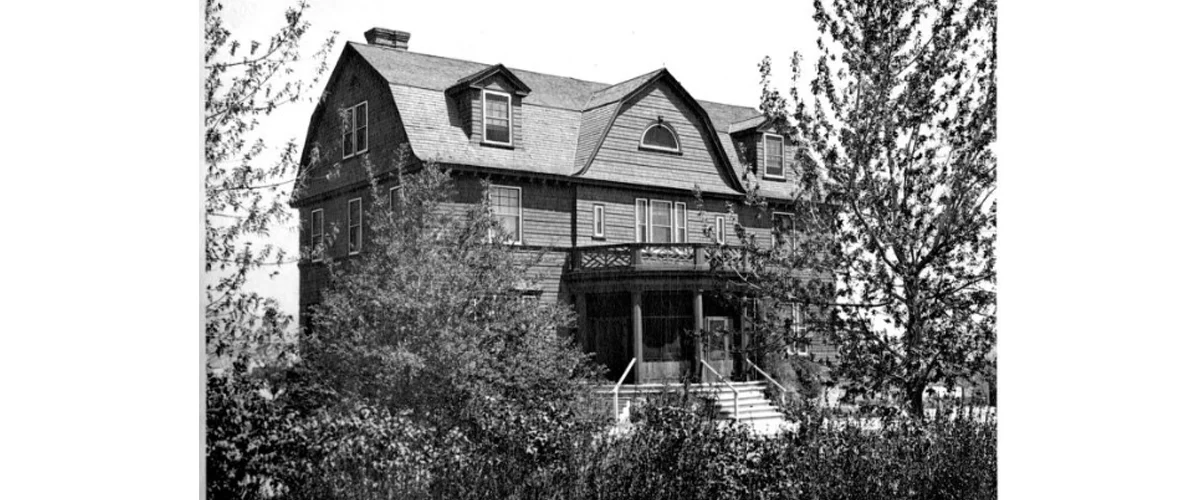
The President's House is seen with lush trees surrounding it (photograph album; photographic print, 5 x 7 inches). The President’s House was built in 1900 and stood at the southeast part of the Quad, to the left of where Morrill Hall and the south of where Mackay Science are located today. This was used as the University President’s home until it was torn down in 1956. Special Collections and University Archives Photograph Collection, President's House, 1920, UNRA-P641-06
1902
Because of a possible smallpox epidemic, University leaders and local health officials required students living in the dormitory to stay on campus.
1903
Joseph Williams earned the first advanced degree from the University, a Master of Arts in Social Sciences.
1904
The University celebrated the 30th anniversary of its founding. Professor of Classics James E. Church edited a memorial volume for the event.
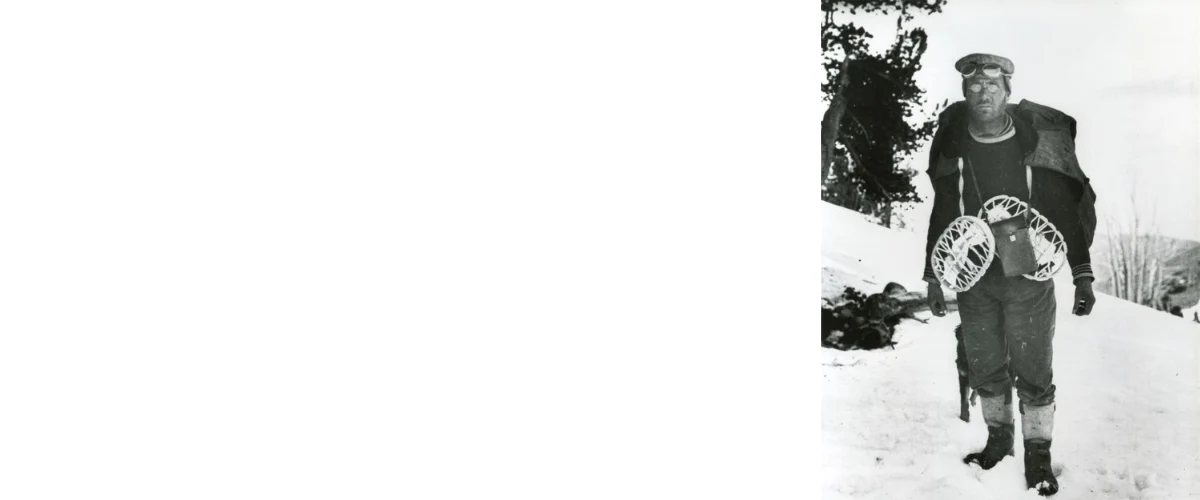
Professor James E. Church was a Professor of Classics (1892-1939), a pioneer in snow surveying, and an advocate for community art galleries. Here he is photographed wearing goggles and snowshoes, standing on a snowy hillside (photographic print). Special Collections and University Archives Photograph Collection, Faculty, Classics Professor James Edward Church, Jr., ca. 1920, UNRA-P3359-221-2
1906
The name of the University officially changed from Nevada State University to the University of Nevada.
1906
A devastating earthquake destroyed large parts of San Francisco, California, including the printers responsible for the year’s Artemisia yearbook.
1907
The University received a bronze statue of Comstock pioneer John W. Mackay created by Gutzon Borglum commissioned by Mackay’s family.
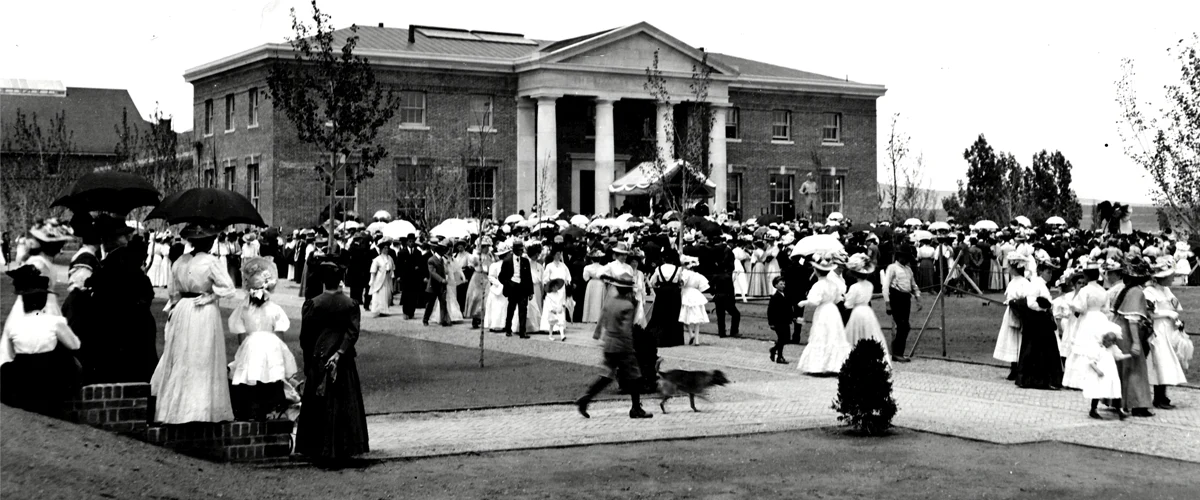
This scene shows the Mackay Statue unveiling during the dedication ceremony for the Mackay School of Mines with a crowd of dressed-up spectators milling around the Quadrangle in the foreground. The Mackay Statue was placed in front of the Mackay School of Mines during its opening in 1908. Clarence Mackay, a great benefactor during the beginning years of the university, had the statue made in honor of his father, John Mackay. The statue was situated so that Mackay’s face is looking toward Virginia City where he made his fortune in the Comstock Mine. Special Collections and University Archives Photograph Collection, Mackay School of Mines Building dedication, June 10, 1908, UNRA-P222-1
1907
The department of Physics began offering classes.